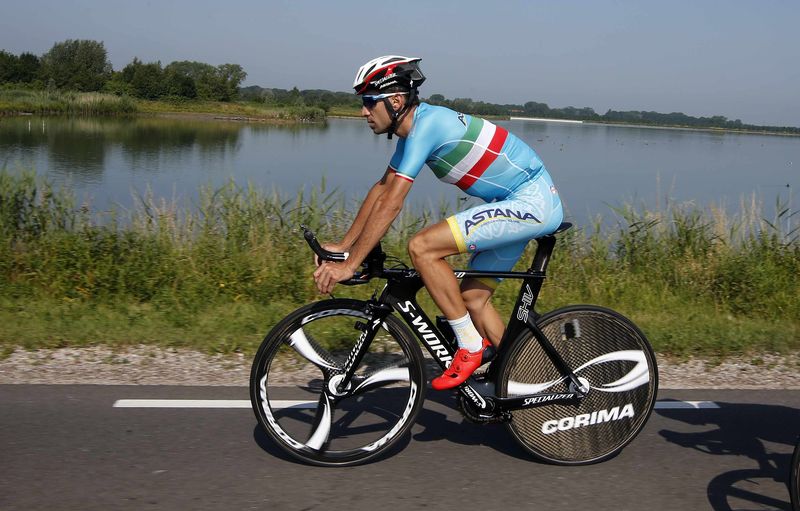By Julien Pretot
UTRECHT, Netherlands (Reuters) - The Astana team were plunged into controversy again when Dutch rider Lars Boom faced being thrown out of the Tour de France because of low Cortisol levels on the eve of the start.
Low levels of the hormone can be explained by the use of corticoids, anti-inflammatory drugs that are allowed out of competition but forbidden while racing unless a rider is granted a Therapeutic Use Exemption (TUE).
Astana, the team of defending Tour champion Vincenzo Nibali, are members of the MPCC (Movement for Credible Cycling) that applies stricter rules than the International Cycling Union (UCI) and the World Anti-Doping Agency (WADA).
"According to article 9 of the MPCC the return to competition will be made after at least eight days of rest," the MPCC said in a statement on Friday.
UCI regulations do not forbid Boom from starting Saturday's first stage, a 13.8-km individual time trial.
Team manager Alexandre Vinokourov suggested Astana could leave the MPCC so that Boom may begin the race.
"Either the UCI allows us to replace Boom or he starts with us. Never mind the MPCC," the Kazakh told the French sports daily L'Equipe.
Astana made a formal request to the UCI to ask if Italian reserve Alessandro Vanotti could take the Dutchman's spot in the squad but they were denied permission.
"Teams can't change their starting list after the sports directors' meeting has taken place," the UCI said in a statement.
"The UCI is committed to applying its regulations consistently and will therefore not authorise any team to change its starting list now."
Astana were last year faced with being stripped of their World Tour licence following positive dope tests and only learned they had retained their elite status in late April.

"Our team is followed closely. Our training programme has been spoken about and we've paid the price for the riders who doped but we can't pay the price for mistakes we haven't made ourselves," Nibali said earlier on Friday.